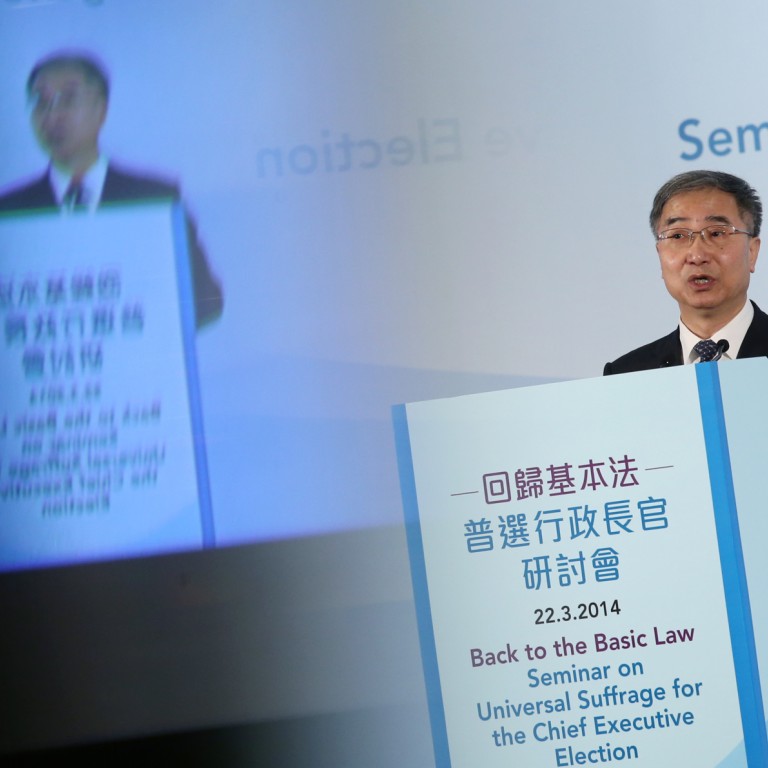
Almost half of Hong Kong’s doctors and dentists support right to nominate candidates in chief executive election
About 55 per cent of those surveyed said they opposed the Occupy Central civil disobedience campaign planned for this summer, which seeks to mobilise supporters to block the streets of Central unless the government comes up with what they consider a true democratic system for the chief executive election in 2017. Only about 25 per cent said they supported the protest.
Almost half of Hong Kong's doctors and dentists say they support the idea of voters nominating candidates for the chief executive poll, according to a survey by the Hong Kong Medical Association.
This is despite 72 per cent of them saying Hong Kong should adhere to the Basic Law and rulings of the National People's Congress Standing Committee in reforming its political system.
About 55 per cent of those surveyed said they opposed the Occupy Central civil disobedience campaign planned for this summer, which seeks to mobilise supporters to block the streets of Central unless the government comes up with what they consider a true democratic system for the chief executive election in 2017. Only about 25 per cent said they supported the protest.
More than 14,000 questionnaires were sent to local registered doctors and dentists late last month, with 1,507 responses received by March 15.
On the idea of public nomination of chief executive candidates, 49 per cent of respondents supported the idea, while 38.2 per cent objected.
Beijing officials have repeatedly expressed opposition to public nomination, saying it is not in line with the Basic Law.
On Saturday, Beijing law professor and member of the Basic Law Committee Rao Geping told a seminar in Hong Kong that public nomination would undermine the exclusive right of the nominating committee to put forward candidates.
Article 45 of the Basic Law states that the chief executive should be selected "by universal suffrage upon nomination by a broadly representative nominating committee in accordance with democratic procedures".
On reform of the Legislative Council elections, 58.1 per cent of the respondents said the number of seats returned through direct elections should be increased for the 2016 poll, while close to 30 per cent of those questioned preferred to maintain the status quo.

